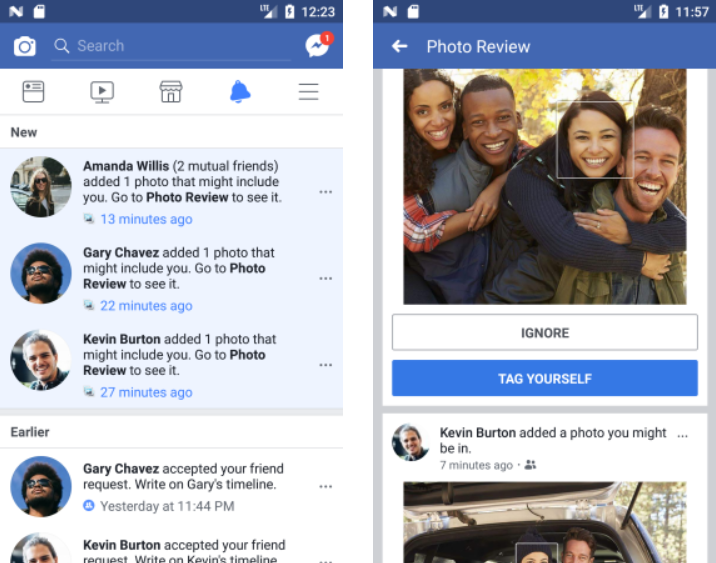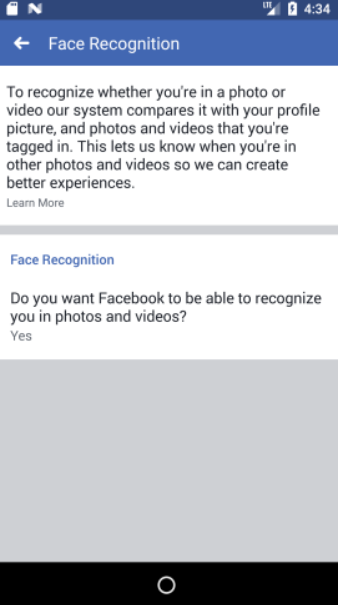Facebook will now tell you if a troll is using your image for their profile picture, even if they didn’t tag you.
With the same facial recognition techniques it uses to suggest friends you may want to tag in photos, the social network will notify you if someone posts your image without consent. The feature, called “Photo Review” will send you an alert every time a photo with your mugshot is posted.
From there, you’ll have the power to tag yourself, leave yourself untagged, report the image, or reach out to the person who posted the photo. Note: You’ll only be notified if an image was posted by a public profile or if you’re in the poster’s audience, a limitation that protects the uploader’s privacy and prevents users from seeing images they wouldn’t otherwise have access to.

Facebook claims its recognition tools are effective enough to pick you out of a crowd. For example, if you attended a soccer game, and a team later decides to post an image from the game, Facebook should find you in the crowd and send you an alert.
Facebook says the purpose of the feature is to help users “better manage their identity.” It admits the tool was designed to prevent people from impersonating others. A thread from 2013 on Facebook’s help page shows the need for a tool that prevents rogue users from irresponsibly posting images of others.
In the thread, one user asks, “Someone open a fake Facebook account and using my pictures as profile pictures. what should I do?” Another said someone was using their profile image and name to talk to other people, and several others complained someone was impersonating them and telling lies.

If Facebook’s facial recognition technology sounds more scary than useful, don’t worry—the social site is adding an on/off toggle in its settings. If your tag suggestion setting is turned to “none,” then facial recognition will be off until you change it.
Still not convinced? You may want to move to Canada or Europe, where privacy protection laws prevent Facebook from using facial recognition tech altogether. Here in the U.S., the feature will roll out in the “coming weeks.”


